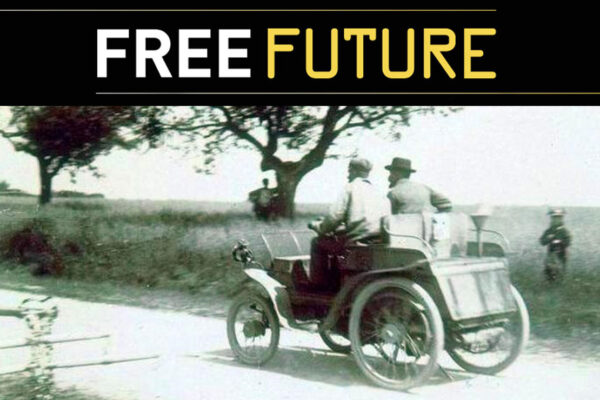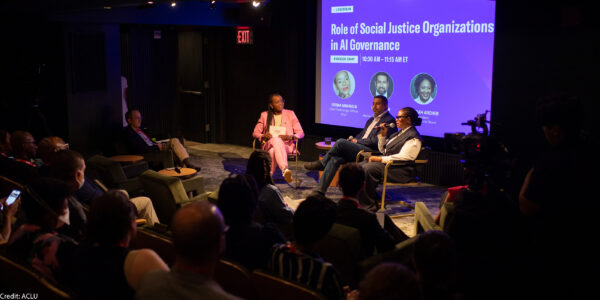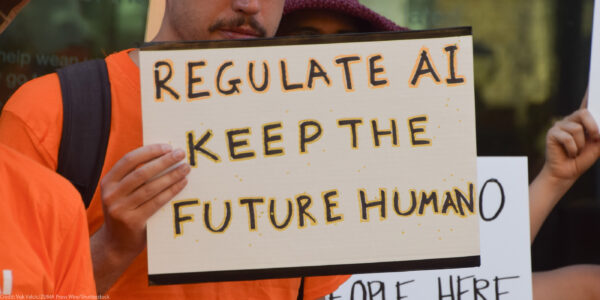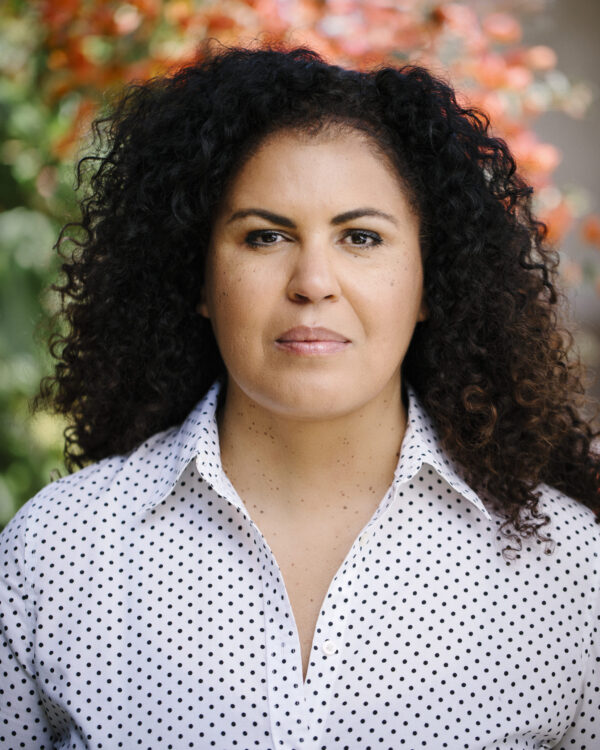
Google This: Algorithmic Oppression
February 18, 2021
Imagine you’ve forgotten once again the difference between a gorilla and a chimpanzee, so you do a quick Google image search of “gorilla.” But instead of finding images of adorable banana-obsessed animals, photos of a Black couple pop up.
Is this just a glitch in the algorithm? Or, is Google an ad company, not an information company, that’s replicating the discrimination of the world it operates in? How can this discrimination be addressed and who is accountable for it?
Our guest today, UCLA professor and best-selling author of “Algorithms of Oppression,” Dr. Safiya Noble answers these questions.
In this episode
This Episode Covers the Following Issues
Related Content
-
News & CommentaryAug 2025

Privacy & Technology
+2 Issues
Flock’s Aggressive Expansions Go Far Beyond Simple Driver Surveillance. Explore News & Commentary.Flock’s Aggressive Expansions Go Far Beyond Simple Driver Surveillance
Build it (an authoritarian tracking infrastructure) and they (expanded uses) will comeBy: Jay Stanley -
News & CommentaryJul 2025

Privacy & Technology
Ai Could Exacerbate Inequality, Experts Warn. Explore News & Commentary.AI Could Exacerbate Inequality, Experts Warn
At the Ířşě±¬ÁĎ’s Civil Rights in the Digital Age AI Summit, leaders convened to evaluate the civil rights landscape of artificial intelligence and tech, and how we can call for policies that center privacy, fairness, and equity.By: Ijeoma Mbamalu -
Press ReleaseJul 2025

Free Speech
Privacy & Technology
Texas Social Media Law Violates First Amendment, Aclu Argues. Explore Press Release.Texas Social Media Law Violates First Amendment, Ířşě±¬ÁĎ Argues
SAN ANTONIO – The Ířşě±¬ÁĎ, the Ířşě±¬ÁĎ of Texas, and several other legal advocacy groups filed an amicus brief today in CCIA v. Paxton, arguing that a Texas law that restricts social media content for minors violates the First Amendment. “If allowed to go into effect, this law will stifle young people’s creativity and cut them off from public discourse,” said Lauren Yu, legal fellow with the Ířşě±¬ÁĎ’s Speech, Privacy, and Technology Project. “The government can’t protect minors by censoring the world around them, or by making it harder for them to discuss their problems with their peers. This law would unconstitutionally limit young people’s ability to express themselves online, develop critical thinking skills, and discover new perspectives, and it would make the entire internet less free for us all in the process.” The brief argues that House Bill 18 (“the SCOPE Act”) restricts young people’s ability to use social media and blocks them from viewing content they have a constitutional right to see. The law, which was enjoined by a court last year, would require minors to register their age with social media platforms and would require platforms to filter content based on an overly broad definition of “harmful to minors” that includes any content that “promote, glorifies, or facilitates” a long list of topics, including eating disorders, bullying, and self-harm. “The government should not be able to decide what’s best for every child,” said Chloe Kempf, staff attorney from the Ířşě±¬ÁĎ of Texas. “This law would isolate kids who need community support, hinder families who want their children to learn about the world around them, and open the door to sweeping bans — from Romeo and Juliet to content that is critical of the government. What’s framed as protecting our children is harming them — by censoring their access to the ideas and information they need to prepare for their futures.” The Supreme Court has repeatedly held that minors have robust First Amendment rights, including online. Even when the goal is to protect children, the brief argues, the government cannot infringe upon core expressive activity. The brief was filed in support of Computer & Communications Industry Association (CCIA) and NetChoice. CCIA & NetChoice originally filed suit against H.B. 18 in 2024. The amicus brief was filed in the Western District of Texas and was signed by the Cato Institute, the Student Press Law Center, TechFreedom, Wikimedia, and the Woodhull Freedom Foundation. The brief can be viewed online here.Court Case: CCIA v. PaxtonAffiliate: Texas -
News & CommentaryJul 2025

Civil Liberties
Privacy & Technology
As Ai Gains Power, We Must Push For Guardrails To Protect Civil Liberties. Explore News & Commentary.As AI Gains Power, We Must Push for Guardrails to Protect Civil Liberties
As AI increasingly makes decisions in hiring, policing, and social services, the Ířşě±¬ÁĎ’s Civil Rights in the Digital Age Summit focuses on promoting responsible AI design to ensure technology protects rights and serves justice for all.By: Ijeoma Mbamalu
